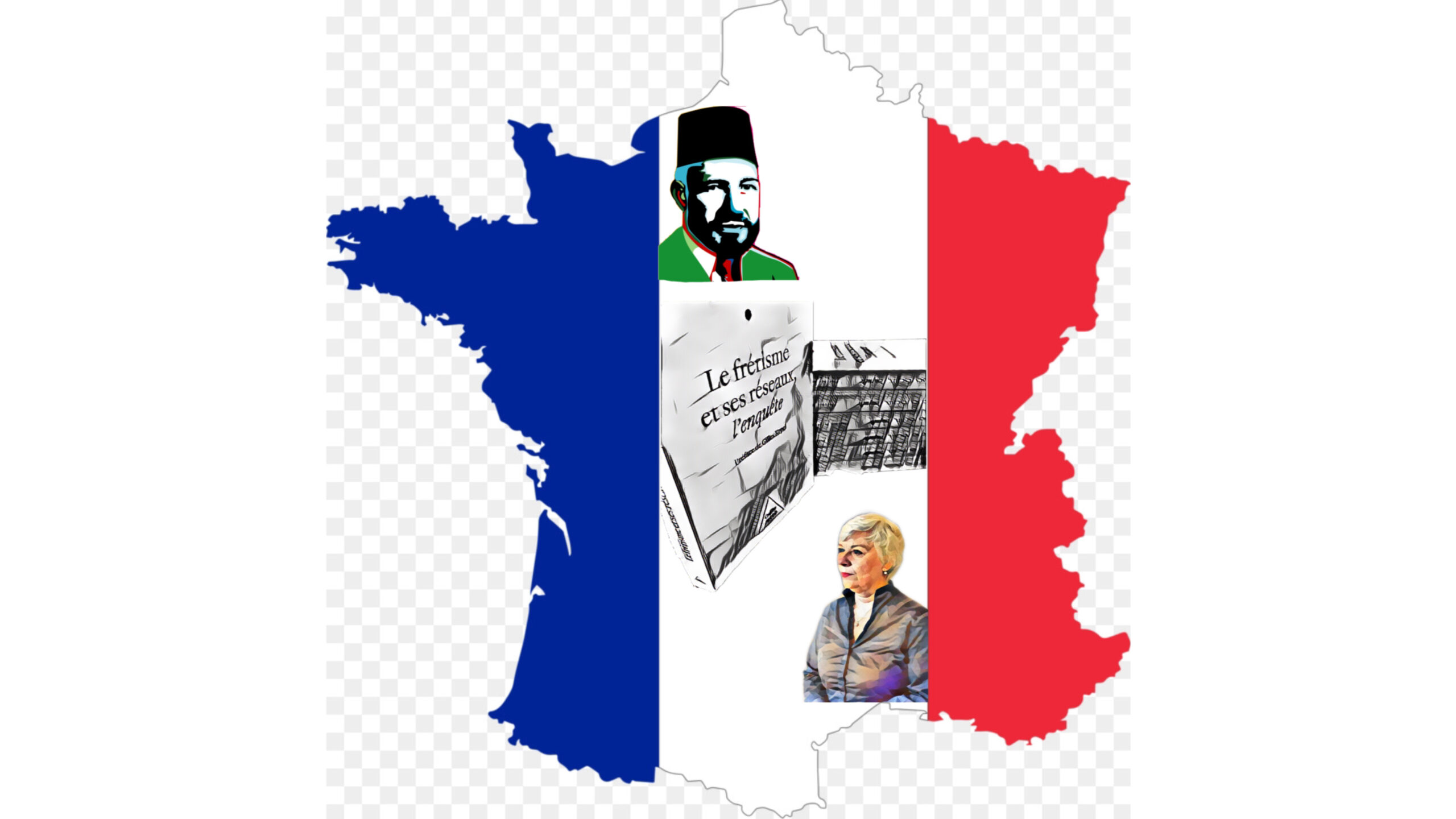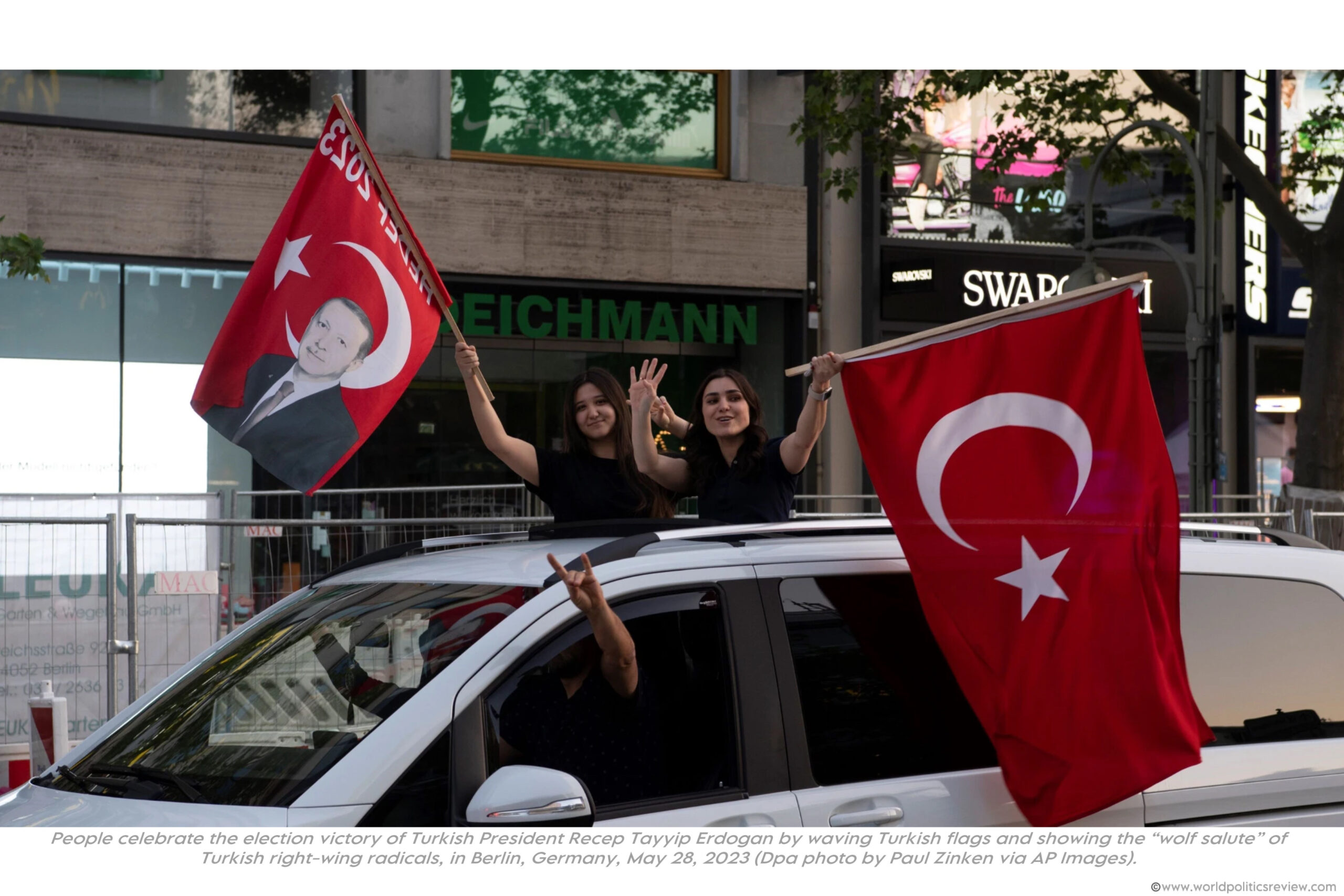The French scholar, Florence Bergeaud-Blackler, has been a target of death threats that led her to be put under police protection, after publishing in January 2023, The Brotherhood and its Networks: The Investigation (Le Frérisme et ses reseaux, L’Enquête) .[fn]https://www.lexpress.fr/idees-et-debats/florence-bergeaud-blackler-sur-lislamisme-le-monde-de-la-recherche-ne-brille-pas-par-son-courage-VFEAIBEU6JDMXOTAVZB6XZKCS4/ [/fn]. An anthropologist at the French National Center for Scientific Research (Centre National de la recherche scientifique, CNRS), Bergeaud-Blackler is a long-time observer of the Islamist landscape in the West. The Brotherhood and its Networks: The Investigation describes the Muslim Brotherhood’s efforts to spread Islamism in Europe. It presents the Muslim Brotherhood’s history, doctrine, structure, and modus operand in Europe. She describes what she calls “entrism”: a strategy of infiltrating core governmental and non-governmental institutions to propagate its ideology, which she calls “Brotherism” (Frérisme) and qualifies as “an intellectual politico-religious project aimed at establishing an Islamic world.” [fn]https://www.meforum.org/64376/crisis-in-france-author-writes-on-islamism-needs[/fn]
Bergeaud Blackler’s book got a lot of attention in the media. The center-right daily newspaper, Le Figaro described her work as “immensely meritorious” for revealing how the Muslim Brotherhood, the most secretive of Islamist organizations, succeeded in making the European Union the primary base of their project to conquer the world. [fn]https://www.lefigaro.fr/actualite-france/europe-l-islam-face-a-l-entrisme-des-freres-musulmans-20230120[/fn] The conservative news magazine Le Point boldly titled its interview of Bergeaud-Blackler: “The Muslim Brotherhood’s Weapon is Subterfuge.” The conservative Atlantico website published a lengthy excerpt of her book that explains how “Islamophobia is the refined weapon at the heart of the Muslim Brotherhood’s strategy to conquer Europe.” The left-leaning news magazine Marianne, in a friendly interview with Bergeaud-Blackler, noted that “the Muslim Brotherhood wants to transform European society to make it Sharia-compatible.”[fn] https://atlantico.fr/article/decryptage/islamophobie-l-arme-peaufinee-au-coeur-de-la-strategie-des-freres-musulmans-pour-se-deployer-en-europe-institutions-europeennes-frerisme-enar-discriminations-racisme-ccif-hijab-florence-bergeaud-blackler.[/fn][fn] https://www.lefigaro.fr/actualite-france/europe-l-islam-face-a-l-entrisme-des-freres-musulmans-20230120 [/fn]
The Belgian-Moroccan anthropologist Fadila Maaroufi, in an article published by Atlantico, noted that Bergeaud-Blackler’s book “hit the nail on the head” and that those who are attacking her are paradoxically validating the thesis of her work. “What is at stake is freedom of conscience and academic freedom, which have been undermined for many decades,” she warned. “Silence makes us accomplices”.[fn]https://atlantico.fr/article/decryptage/cette-infame-campagne-que-dechainent-freristes-islamistophiles-et-idiots-utiles-contre-florence-bergeaud-blackler[/fn]
Despite the appraisal that the book received in the media, its content and research have been the subject of strong criticism by scholars and Muslim activists, especially from her colleague at CNRS, Francois Burgat, former CNRS research director and director of the Arab Center for Research and Political Studies in Paris (Centre arabe de recherches et d’études politiques de Paris, CAREP ). In his view, the book is the outcome of what he calls a “keyboard search” with no social or political contextualization. [fn]https://blogs.mediapart.fr/francois-burgat/blog/120423/l-islamophobie-d-atmosphere-les-ressorts-d-une-vieille-obsession[/fn]
The first part of the book presents a succinct history of the Muslim Brotherhood since its creation in 1928 in Egypt and describes it as “the first militia of the radical anti-colonials” (p. 30) and “the first great cultural struggle for decolonization” (p. 41). Such an assessment omits the fact that anti-colonialism was also the struggle of the “liberal” Westernized anti-colonial elites as well.
The book is above all a “synthesis of brotherhood ideology in Europe”. To do so, the author builds the object of study as Frerism (“brotherism”) that it is neither a political party nor a theological school, but a system of action, which is adequate. However, her description of this mode of action is partial: Islamism is seen as a supremacist, vengeful project eager to restore the glorious past of Islam and non-Muslims have to be converted or eliminated. This is true of some Islamists but does not reflect the forms of mobilization of the Muslim Brotherhood in Europe. As a matter of fact, there are several Islamist political projects: Wahabi, Salafi… and the Muslim Brothers; are one of them and certainly not the intolerant ones depicted in the book,
From this assessment, the book moves on to question the existence of Islamophobia and how denouncing Islamophobia is often a way to prevent “any criticism of Islam or Islamist violence”, and therefore becomes an “instrument for promoting fundamentalist Islam” (p. 186). There is undoubtedly some activists who can confuse critique of Islam with insult or discrimination but it does not mean that discrimination against Islam and Muslims does not exist.
In the last part of the book, Florence Bergeaud-Backler advocates for continuous surveillance and control of Muslim practices, from halal to hijabs, and even children’s programs. She writes, in openly normative accents, pp. 336-337, the following :
“The Brotherhood dreams of theocracy: Islam is a culture or a tradition but a system that meets all individual and collective needs… For Muslims to integrate, it is not up to Islam to assimilate itself in Europe, but to Europe to assimilate Islam. He seeks to make the world Sharia compatible, to make sure that the principle of separation of politics and religion will be relativized or abolished (..).Muslims put loyalty to their community above everything else: they justify the jihadist even if they do not support him, they justify anti-Semitism (which is no more than anti-Zionism) even if they are not anti-Semitic, and women justify the veiling of women even if they do not wear the hijab. If reading these lines, your immediate reaction is to look for other comparable examples outside Islam (among Jews, Christians, the Middle Ages or Syria, etc.) to reassure you that these characteristics exist elsewhere and that it is not so serious, you may also share a little of this brotherly mental space…” [fn]https://www.mizane.info/le-frerisme-et-ses-reseaux-un-essai-sature-de-jugements-de-valeur/[/fn]
Such broad assertions blur the differences between the Muslim, Brotherly, and jihadist ethos. They also carry culturalist, essentialist, and anti-sociological connotations, insofar as even comparative work which is here delegitimized, and even suspicious. In addition, rather than analyzing Islamism and brotherhood in situ, from accumulated, renewed, and updated contemporary field data, the author is studying it through the main prism of out-of-date normative positions that do not reflect the empirical realities of Muslims in Europe.
Another scholar of CNRS Omero Marongiu-Perria describes her book, as ideological posture and “Phantasmagorical elucubration”. He insists that Bergeaud-Blackler has every right to express her ideas. But she legitimizes these opinions as research by publishing as a CNRS scholar and by throwing the names of people to popular vindictiveness by simply accusing them of forming a fifth column within France without a hint of critical hindsight or even a beginning of scientific credibility.[/fn] [fn]https://www.politis.fr/articles/2023/05/une-islamophobie-datmosphere/[/fn]
Rafik Chekkat a former lawyer, writer, and activist said that it’s not enough to just point out the inconsistency of Florence Bergeaud-Blackler’s argument. By campaigning for the surveillance of Muslims’ behaviors, the conclusion of the book contains a number of formulas that could justify any anti-Muslim legislation or policies. According to Chekkat, it’s no wonder the book was praised by far-right groups as it legitimizes Islamophobia as a defense against the threat of Islam. Among the democracies of the Euro-Atlantic area, France is the only country where the government has closed associations defending the rights of Muslim individuals and institutions (dissolution of the Collective Against Islamophobia in France (CCIF) of December 2, 2020, and the Coordination against Racism and Islamophobia (CRI) of October 20, 2021). [fn]https://orientxxi.info/lu-vu-entendu/islamophobie-le-complotisme-d-atmosphere-de-florence-bergeaud-blackler,6282 [/fn]
On 12 April 2023, CNRS tweeted in support of freedom of research and strongly condemned the threats made against Bergeaud-Blackler. CNRS assured that she will be given all support for her research and the functional protection she requested. [fn]https://twitter.com/cnrs/status/1646085942275366913?s=61[/fn][fn]https://www.marianne.net/agora/tribunes-libres/affaire-florence-bergeaud-blackler-lislamisation-de-loccident-les-islamistes-nont-jamais-cache-leur-intention[/fn] Scholars have also expressed their support to Bergeaud-Blackler in an open letter signed by more than 170 academics. It stated that it is expected in a democratic society to defend its researchers against any threat and to ensure the conditions for the possibility of scientific debate. [fn]https://www.lepoint.fr/societe/pourquoi-l-ecole-n-en-a-pas-fini-avec-les-islamistes-22-10-2020-2397621_23.php[/fn] [fn]https://www.meforum.org/64376/crisis-in-france-author-writes-on-islamism-needs[/fn]
Bergeaud-Blacker lecture scheduled for 12 May 2023 at Sorbonne University was suspended by the dean of Sorbonne’s Faculty of Letters for “security reasons”. The decision aroused strong reactions while Florence Bergeaud-Blackler had to be placed under police protection after death threats, according to her lawyer. Reacting to the situation, the Ministry of Higher Education and Research considers it “intolerable that academic freedom could be called into question by the slightest threat against her”.Sorbonne University has clarified that the conference “was neither censored nor canceled, but postponed” to June 2, 2023. Following the cancellation, Deputy Roger Chudeau, in charge of educational issues within “Rassemblement National” the national right-wing party, invited Florence Bergeaud-Blackler to lecture at the National Assembly. [fn]https://globeecho.com/news/europe/france/after-the-postponement-of-a-conference-on-islamism-at-sorbonne-university-questions-remain/[/fn]
The controversy shows that Islamophobia has become a weapon against academic freedom used by both sides. On one hand, the anti-Islamophobe can use it to silence any critique of Islam. On the other hand, their opponents denounce Islamophobia as an invention of islamist to advance their political agenda in Europe. This dangerous polarization of the scholarship on Islam,either pro or contra, undermines any credible academic work.






